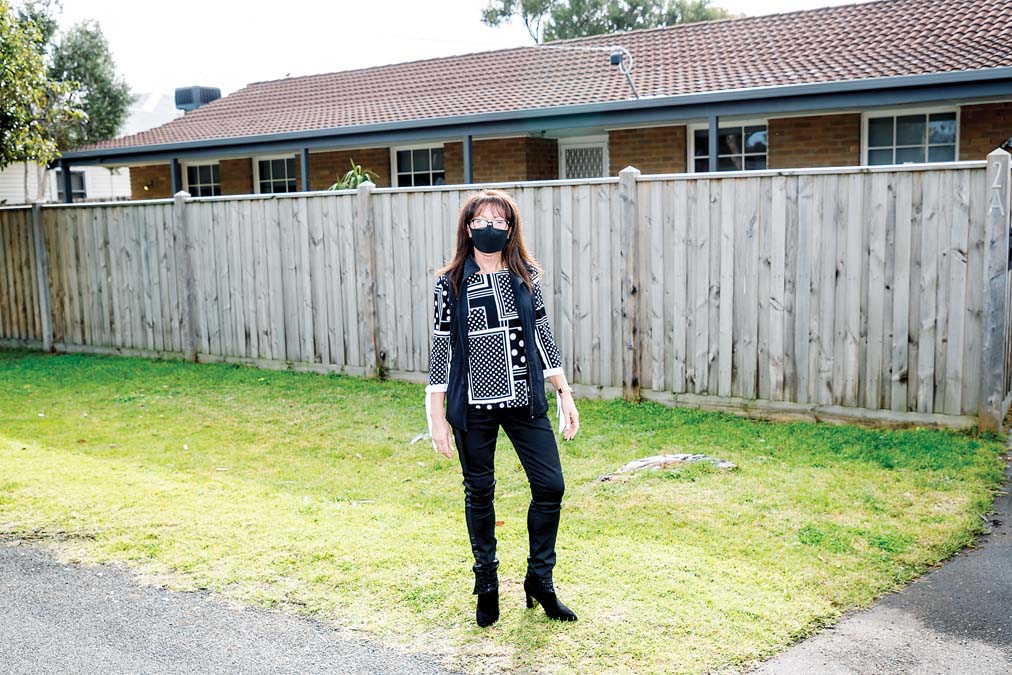A COMBINATION of factors is making it harder for prospective renters on the Mornington Peninsula to find suitable homes to live in long term.
Anecdotally, the shortage of medium-and-long-term rentals is being caused by landlords taking advantage of the money to be gained from short-stay rentals, such as AirBNB, where they can make as much over a few weekends as over the long-term, and then have the flexibility of using their property when they choose. Also, as a result of changed habits due to the COVID pandemic, holiday home owners are moving to the peninsula and working from home, while landlords, disgruntled at wholesale rule changes imposed by the new Residential Tenancies Regulations, are saying “enough is enough” and moving into their investment properties themselves.
Other landlords are taking advantage of booming property prices caused, in part, by low interest rates, and selling in a “hot” market.
This “perfect storm” of events is resulting in fewer properties being available to rent which may change the make-up of the peninsula’s population with fewer families, fewer school-age children and less variety among age groups. It could also lead to an increase in homeless.
Cr Susan Bissinger said discussions with residents and comments on social media pointed to a “crisis” in accommodation for medium-to-long-term renters.
“I received a text from someone I know who is being evicted from their long-term rental and has exhausted all other avenues in finding a new home,” she said.
“These families make up a significant part of our community, with kids enrolled in school, involved in sporting clubs, working in the area.
“When you add these points together, it is no wonder that our medium to long term rental market is at crisis point.”
Century 21 Hastings principal Chris Watt said landlords were “leaving the building” and taking rental properties with them. He said the “hot” property market made it an ideal time to sell and avoid the new tenancy laws which some landlords believed tilted the balance too much in the tenant’s favour.
Mr Watt said this was leading to a rental property shortage which in turn was pushing up rents.
Landlords in the town are taking advantage of capital gains of up to $100,000 over the past two years by selling rather that going to the trouble of complying with the new tenancy regulations – which came into effect in March – and having to improve the property before it can be re-let.
Adding impetus is the knowledge that the share market is going gangbusters and shares, with their added flexibility, can be sold in small parcels whereas properties cannot.
Also, many former rental properties are being snapped up by now-owner-occupiers taking advantage of low interest rates. Renters are not in the race.
Peninsula Property Management director Elaine Bourke said the scenario of profitable Airbnbs, former landlords moving into their properties, or selling out in a vibrant market while avoiding tough tenancy rules, were “exactly what is happening” on the Mornington Peninsula.
She said the effect was devastating for renters and causing a massive shortfall in available properties.
“We’ve got families with nowhere to live,” she said.
Ms Bourke said the state government “didn’t think through” the effects of comprehensive changes to the residential tenancies regulations which impose audits on properties covering items such as gas, electricity and smoke alarms, even cookers and heaters. The audits are costing the average landlord $700.
“These audits are not imposed on owner-occupiers or if they rent their properties out on Airbnb,” she said. “There was not enough consultation with mum-and-dad landlords who own a property and have a mortgage on it. The changes are a burden and are unreasonable.”
Ms Bourke said the effects of the shortages in rental properties caused by the “perfect storm” had stripped value from her – and other real estate agents – businesses on the peninsula because they had fewer properties to let.
“It’s extraordinary,” she said. “The effect on small business has been devastating.”
Jacobs & Lowe Real Estate director Cameron McDonald said the rental median had gone up after a lag caused by the pandemic last year, while fewer properties for lease had exacerbated the rent rises.
Changes to the tenancy laws were deterring investors and making them “gun shy” of buying properties to rent with the flow-on effect making long-term rentals – especially older properties – harder to find, he said.
First published in the Southern Peninsula News – 22 June 2021




